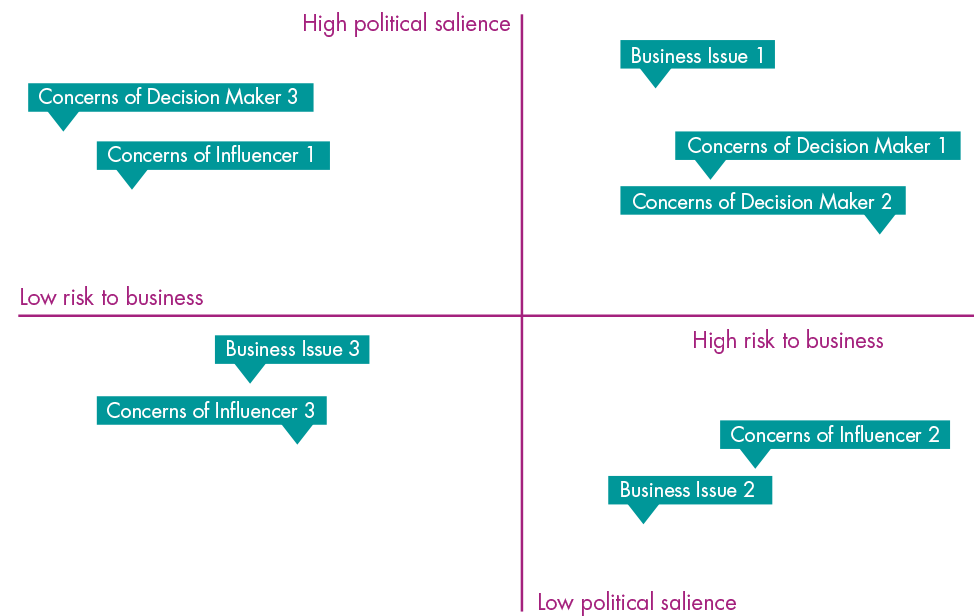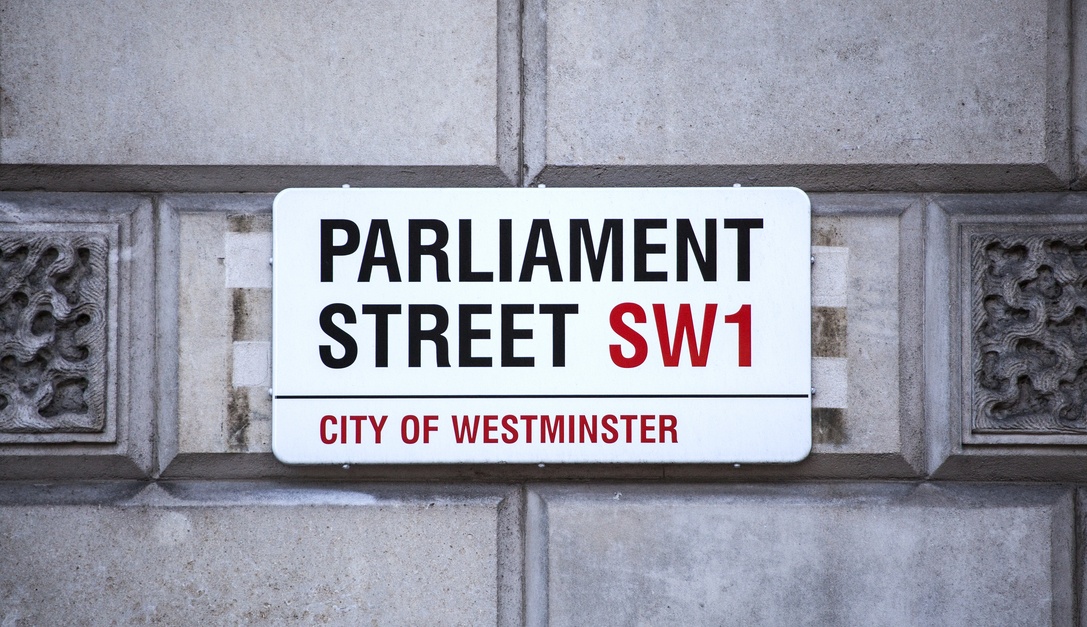
Policy and regulation can have a significant impact on businesses, especially those operating in the technology sector where innovation is a constant.
Innovative businesses are at risk of falling foul of outdated laws or hastily introduced new ones that could harm their operations and growth. However, changes to policy and regulation can also open up new commercial opportunities for existing companies and start-ups, especially those addressing public sector markets.
All organisations face regulatory hurdles in their endeavours to break away from industry norms. This has been particularly true in recent years in the tech sector where Uber, Facebook, Google and Amazon have all faced regulatory challenges from many governments around the world.
The reality is that any organisation in the business of offering innovative products and solutions are bound to come up against regulatory and policy issues in their attempts to take advantage of market opportunities and to develop new ways of meeting consumer demands. This is particularly the case where innovation is disrupting an existing regulated industry, as Uber have done for taxis and Airbnb have done for hotels.
At the same time, it is true that policy makers often seek to identify breakthrough innovations that can provide economic or social advantage to their country, state, region or town. This can present an opportunity for companies wanting to innovate in a new space. For example, the UK Government has identified both autonomous vehicles and artificial intelligence as sectors in which they would like to see the UK take a global lead. To this end they are changing the law, providing public funding and offering other support to companies in those sectors.
Since policy and regulation can have such a big impact on a business’ operations and growth prospects, it is in the best interest of organisations to stay ahead of the curve, so they can spot potential threats or opportunities early on.
Many of the most successful organisations have developed strategic engagements with policy makers and regulators in order to create relationships where government, regulators and industry can work together to achieve better outcomes. This does not mean you need to spend the amount of time and money that Google, Amazon and Apple spend lobbying (they are now amongst the biggest spenders in US politics). However, by approaching engagement with policy makers as a dialogue, you can build trust, which will help you influence emerging policy and regulatory changes.
Keeping abreast of the opportunities is just as important as tracking the threats. A new development may mean you are able to move into a previously untapped market or move to a more profitable business model. If you do not take advantage of these opportunities, you can be sure that at least one of your competitors will.
Developing a strategy for engaging with policy and regulation can be daunting without the know-how or the capability of a dedicated in-house function. How do you monitor policy and regulation? How do you analyse what it means for your business? How do you even begin to engage with and influence policy makers and regulators?

You need to have your finger on the pulse of policy and regulatory trends in your market and understand how they could affect your business. By conducting in-depth, up to the minute research you can identify worldwide trends in your sector.
To achieve this, you need to develop the right political expertise and connections to draw out crucial information on upcoming policy changes and regulations and how they might impact your business.
To start with you need to have a process to systematically monitor developments in government, parliament, regulators and the areas of the public sector that are relevant to your business. Most government and regulatory initiatives are announced via press releases and you can subscribe to receive these in your area of interest from the UK Government, European Commission, etc. Parliamentary proceedings can similarly be tracked through email alerts if a particular phrase is used in the Parliament.
There is an important balance to be struck between ensuring your monitoring coverage is broad enough in terms of keywords that you do not miss relevant developments, whilst ensuring that they are not so broad that you are inundated with irrelevant information.
It is also important to ensure that you are covering all political institutions that may be relevant such as devolved administrations and city authorities like the Greater London Authority.
The following resources also regularly share news and trends on regulation and public affairs:
While monitoring developments is all about getting the process right, analysis is much more about judgement. It has never been more difficult to sort the wheat from the chaff in terms of political developments due to the myriad forms that political campaigning can now take.
Sites like 38Degrees, WhatDoTheyKnow, and of course Twitter make it difficult to judge which developments will simply be a political side show and which will be the next #MeToo moment.
Having a strong network within the broad policy world of politicians, regulators, think tanks, relevant academics, the media and industry is helpful in understanding which issues are gaining political salience. Taken together with careful monitoring of the policy environment, this knowledge will allow you to make informed analytical judgments.
Many innovations carry an element of political risk. Whether you are merging, acquiring, launching a new product, or entering a new market, it is likely you will be facing an unfamiliar regulatory landscape. You need to understand the political and regulatory risks involved and analyse current and potential future regulations that may impact on your investment.
Understanding the regulatory environment of a new business or new market requires significant levels of research. For instance, if you are entering a new market, you will need to create a solid market entry strategy. This will involve mapping out any specific legal requirements, assessing questions of jurisdiction and understanding the regulatory position of your competitors.
Where there is an element of disruption you will need to understand who the regulators are, what powers they have, and how they tend to use them.
Much of this work on regulation can be done as desk research, using a wide variety of sources to gain a balanced view. Understanding the policy environment requires more in-depth knowledge from people with experience of the relevant policy makers. This will allow you to build up a full picture of your policy stakeholders across politics, regulators, industry and pressure groups.
Importantly, you will need to differentiate between those who are decision makers of most relevance to your business, who are the decision influencers (who influence the decision makers), and who are the broader policy influencers (who influence the environment in which decisions are made and received).

Putting this research together should allow you to create a clear matrix of political and regulatory risks identifying key issues for the business and the concerns of critical decision makers and policy influencers. Using this matrix of topics you can identify the issues and people you need to spend most time and effort seeking to influence.


Subscribe to Inline Policy's weekly Sector News Summaries for indispensable round-ups of all the latest regulatory and market news from around the world for four of the key technology sectors.
Having identified your key issues, decision makers and influencers you will be able to identify the messages that you need to engage in the debate and respond to the arguments and concerns of your opponents. Message development is not about denying facts or dismissing legitimate concerns, it is about engaging in a reasoned debate to promote your point of view.
In general, your messages should avoid the temptation towards hysterical headlines heralding a solution to all problems or an unmitigated disaster if your point of view is not accepted. There are some limited occasions when these techniques may be appropriate, depending on the audience you are trying to influence and your position in the debate. Your messages should communicate your arguments in a manner that reflects the outlook and concerns of your audience. It is important to demonstrate that you are looking beyond your own commercial self-interest to the wider benefits that will result from decision makers acting in the way you want them to.
Having identified the people you want to influence and developed appropriate messages you can now begin to communicate your messages to them. This is often referred to as lobbying.
Put simply, lobbying means directly contacting politicians and other policy makers to discuss a particular issue. Politicians and policy makers tend to be open to lobbying when it is done in an honest, open and respectful manner. They understand that they need to hear a variety of views, especially views from experts in the field and those most affected by a proposal, before they make a decision on important issues.
Lobbying on particular issues works best when implemented alongside other campaigning techniques, such as coalition building, media engagement, and research to provide evidence.
These elements need to be built into a coherent campaign strategy so that each element supports the other, building momentum for the campaign messages amongst the target audiences.
No two campaigns are the same, as a good campaign strategy will be closely tailored to the issue and the decision makers that are being targeted. You will need to decide which methods of communication are best for your messages and target audience. In an increasingly crowded lobbying environment, finding the right medium for your message is as important as the message itself. While traditional methods like letters, emails and phone calls remain effective, getting meetings with busy policy makers can require considerable persistence. Using social media to engage with politicians is more effective than with other policy makers, but the approach has to be carefully crafted to attract support rather than come across as stalking or spam.
Single issue lobbying campaigns can be effective if there is enough support in terms of numbers and/or a broad range of interests lobbying for a particular decision. In order to achieve the required scale, you will need to identify a coalition of supportive businesses, trade groups and stakeholder organisations who are willing to actively mobilise their leadership, members, or customers to support the campaign.
Grassroots campaigns remain one of the most effective forms of influencing politicians who are accountable to their constituents and will always have one eye on the next election. These campaigns are much less effective at persuading civil servants and regulators, who tend to treat the simplistic messages of mass campaigns with some disdain.
It may be that a campaign on a single issue helps you team up with like-minded businesses to form a trade group that can represent your wider shared concerns. While forming trade associations can be time consuming, they are often more effective in lobbying terms than one company working alone.

Now you have a clear idea about what you need to do, we tackle how to do it. Broadly speaking, you have three options:
You could take control of policy and regulation matters internally by making it a focus for either you as the business leader or assign it to another individual or team within your business.
While keeping it in-house means you have full control over where your efforts are focused, success will be dependent on having the right skills and expertise in-house.
You may decide to look for outside help and hire an experienced policy specialist
to join your company and establish a team to deliver a public affairs programme. A senior policy adviser will have the relevant skills and expertise and, as they are an employee of your company, you maintain much of the control.
It may be that you only need one additional person to sift through monitoring and providing analysis, or you may need a larger team to deliver a broader programme. You can always supplement in-house resources with support from a public affairs agency, which mitigate against needing to recruit more than one person.
A public affairs agency, or lobbying firm, work with a variety of clients and are not directly affected by policy outcomes. They provide a business, or individual, with up-to-date policy and regulatory trends, analyse how they could impact your business, and use their network in the policy community to help you engage with decision makers.
A public affairs agency tends to work with a business on an ongoing basis, meaning you can focus fully on other priorities with the knowledge they will be there as a trusted and consistent adviser. However, employing a third-party does not come without some management requirements; as with any consultancy relationship you will need to ensure they understand your business priorities and maintain a high quality level of work and service.

If you decide to hire a public affairs agency, you will need to consider which organisation will be right for your business. Whether they are a good choice for you will depend on their knowledge, skills, connections, and how well they ‘fit’ with the culture and values of you and your business.
Most public affairs agencies are generalists but have specialists in different fields working within the firm. It is important to ensure that you are going to be getting advice and support from the people who have a genuine interest and insight into the work of your businesses, not simply a team who are providing a generic public affairs programme with a few of the names changed for relevance.
A good public affairs agency will be outstanding problem solvers; experts at analysing, distilling and turning complex information into digestible, actionable information.
They should also be both excellent communicators and listeners. Providing you with clear written research reports and presenting facts and arguments are a large part of the role, so it’s vital they can speak articulately and write eloquently. Listening skills are equally important, as no matter how much experience they have in your sector, they need to fully understand the specific challenges you face and your goals.
When selecting an agency you should think about whether they have the same values as you in terms of work ethic and commitment to quality? Does their culture of management and strategic thinking match yours? Similarly, if you are a forward-thinking, innovative and dynamic company, you want to partner with an agency that exemplifies these characteristics. Your relationship with your public affairs agency will hopefully be a long and prosperous one, and the right fit is therefore, arguably, the most important element to consider.
